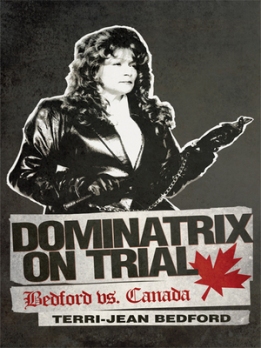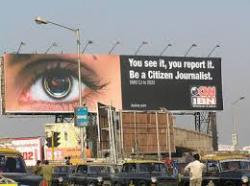With the famous Prostitution case (Bedford v. Canada) coming to the Supreme Court of Canada June 13, 2013 I thought it would be interesting to do a Wikipedia search “Prostitution in Canada”. Wikipedia is a very popular website. It is becoming increasingly used as the first and sometimes only stop for online encyclopedic information (Royal and Kapila, 2009,138). However, the credibility of Wikipedia is often criticized. Wikipedia articles are completed by multiple contributors with no overarching “supervisory role” (Jensen, 2012,1181). Some may see this as a problem and contributes to lack of validity in the work. However, every statement ought to be based on published reliable sources (Jensen, 2012,1177). Also, does the fact that the posts are eventually checked and unwarranted comments are removed, make it more credible? I think Wikipedia is a factual source.
An interesting part of Wikipedia pages is the “talk page”. This is evidence of Wikipedia’s collaborative nature, “where anyone can comment on or complain about the article” (Jensen, 2012,1177). Considering Prostitution is a very controversial subject and there are many viewpoints it would be interesting to see the discussion on this topic Prostitution in Canada had some comments in the talk page by various authors. I found this particularly interesting. The fact that there is a page where people can voice concerns both good and bad makes it seem quite democratic. I think concerns with Wikipedia draw on the fact that page content is based on bias or viewpoints of the authors. In turn, the talk page is a good way to address the bias and perhaps change the posts if necessary. I found it interesting how different authors could discuss their concerns with information on the page (For example, the legality of Prostitution). In Canada, the legality of Prostitution is quite confusing since overall Prostitution is legal, however some activities surrounding Prostitution are illegal. The talk page is great for showing where information was found (i.e. Criminal Code of Canada).
Another area of discussion I found interesting on the talk page was “Etiquette”. There were concerns over deleting paragraphs on the Wikipedia page without proper discussion. I find this very democratic. If Wikipedia is a collaborative effort, who is to have the say of deletion? However, the author who deleted the paragraph suggested he did so since the content was highly speculative in nature. There is much back and forth discussion, which is both critical in nature and also very nice. For example one author commented, “Your latest edits are definitely an improvement. Keep up the good work!” I think it is nice for people to dedicate their time on Wikipedia to write informative posts. Also, that they are having meaningful discussion regarding the posts is great.
The last interesting debate on the talk page was surrounding trafficking. I particularly liked one comment “There seems to be an attempt on Wikipedia generally to turn every page on prostitution into a discussion on the evils of trafficking as if the two were synonymous”. In turn suggesting that the trafficking section was much longer than the main page and most content should be removed. To someone reading this article prior to edits and knowing nothing about Prostitution in Canada could in turn have biased knowledge on the subject. The fact that this bias was acknowledged allows for the page to be more balanced and credible. I believe the talk page to be very knowledge based and the discussion from authors was interesting. The tensions on the page were acknowledged properly and concerns were addressed. Not one author made a personally biased remark on the talk page nor discussed any particular credentials. Therefore, “Prostitution in Canada” talk page was collaborative in nature, which made for a credible Wikipedia page.
A criticism of Wikipedia is that it reflects the viewpoints, interests, and prominences of the people who use it (Royal & Kapila, 2009,138). However, I think I like having people who care about a subject to write on a subject. The page regarding Prostitution in Canada from an outsider was evidence based. There were 78 references and many being from Government sources and published journal articles.
Users of Wikipedia dedicate their time and energy to developing and sustaining a “vast array of networked products and services” such as collections of informative posts on topics (Dijk & Nieborg, 2009,860). These people ought to be taken seriously. If Internet users were to look at talk pages, perhaps the Wikipedia pages would be more credible, since people would see how much time and effort goes into these pages. Yes, there will always be room for silly or unnecessary comments, however majority of information is well thought and conversed.
References
Jensen, R. (2012). Military History on the Electronic Frontier: Wikipedia Fights the War of 1812. Journal of Military History. 76, 1. pp 1165-1182
Royal, C. & Kapila, D. (2009). What’s on Wikipedia, and What’s Not . . . ?: Assessing Completeness of Information. Social Science Computer Review. 27, 1. pp 138-148.
Van Dijk, J. & Nieborg, D. (2009). Wikinomics and its discontents: a critical analysis of Web 2.0 business manifestos. New Media & Society. 11, 5. pp 855-874.
Other Blogs:
http://developingworldp0li.wordpress.com
http://andrewcbacon.wordpress.com
http://yknwt.wordpress.com

Photo From: http://www.tradebit.com/usr/ebook-reader/pub/9002/436497814620267842885Pic.jpg



